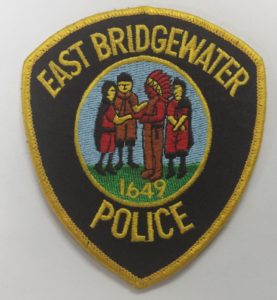Chief Scott Allen, Chief of Police
153 Central St.
East Bridgewater, MA 02333
For Immediate Release
Tuesday, Sept. 6, 2016
Contact: John Guilfoil
Phone: 617-993-0003
Email: john@jgpr.net
East Bridgewater Police Release Documentary Highlighting EB HOPE
EAST BRIDGEWATER – The East Bridgewater Police Department and EB HOPE (Help Outreach Prevention Education) are pleased to announce that EB HOPE has released a documentary highlighting their drop-in center.
In November 2015, EB HOPE began the first of its bi-monthly drop-in center sessions, which were created to proactively assist people suffering from substance use disorders and their family and friends.
The documentary features EB HOPE co-founders Susan Silva and Chief Allen, as well as interviews with treatment centers who partner with the organization and attend the bi-monthly drop-in sessions.
Nearly 350 people have received direct services from EB HOPE, including those suffering from substance use disorders, their family members, and loved ones.
The next drop-in center will be held on Thursday, Sept. 15, from 5-9 p.m. at the East Bridgewater Community Covenant Church, 400 Pleasant St.
Additionally, EB HOPE is hosting a benefit concert for substance abuse recovery this Saturday, Sept. 10, on the East Bridgewater Common. The event will include live entertainment, food, raffles, community outreach and guest speakers.
“I am incredibly pleased to further spread the message of EB HOPE and its success,” Chief Allen said. “I’d like to thank all who were involved and those who continue, day in and day out, to aide the mission of the organization.”
About EB HOPE:
EB HOPE is a nonprofit volunteer organization that launched in 2011. It is a collaboration of members from the community, including police, school department personnel, town government, drug treatment and recovery members, the clergy and residents suffering from substance abuse and/or their family members.
Substance abuse assistance and resources provided by the program include bi-monthly meetings, information on the availability of mental health services, training on the use of nasal Naloxone (Narcan), referral and access to treatment services, family education and support, and faith-based intervention and support.
###

